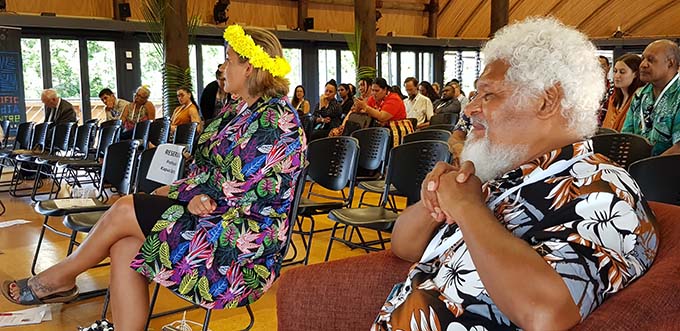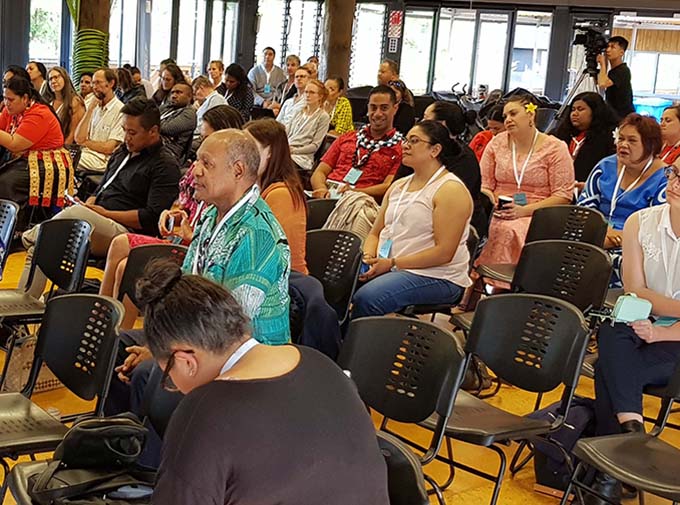
By Blessen Tom
In a bold and innovative move for researchers, the two-day inaugural Oceans and Islands conference today brought together the brightest minds of the Pacific to demonstrate what they do.
Oceans and Islands – a showcase for the region hosted by the NZ Institute for Pacific Research (NZIPR) – was opened by the Minister for Pacific Peoples, Carmel Sepuloni, this morning.
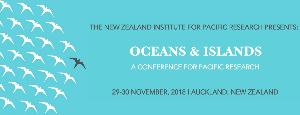 “I really do have the privilege of being able to witness the great contribution that Pacific leaders, academics and communities make to Aotearoa and globally,” the minister said.
“I really do have the privilege of being able to witness the great contribution that Pacific leaders, academics and communities make to Aotearoa and globally,” the minister said.
READ MORE: Pacific aid mapping tool aimed at improving transparency in region
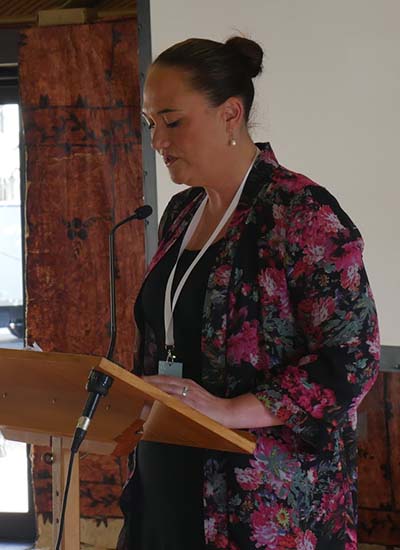
She acknowledged the excellence of Pacific research in New Zealand and welcomed the establishment of research agencies such as Moana Research and commended the leadership of Dr Teuila Percival, Jcinta Fa’alili-Fidow and Dudley Gentles.
The minister also shared some of the research initiatives that she is directly involved with such as the extended funding to the growing up in New Zealand study and Treasury’s Pasifika Economic Report.
“It is critical that Pacific people are meaningfully included in thought leadership and decision making. We must be the authors of our own solutions, and conferences like this support us towards that end,” she added.
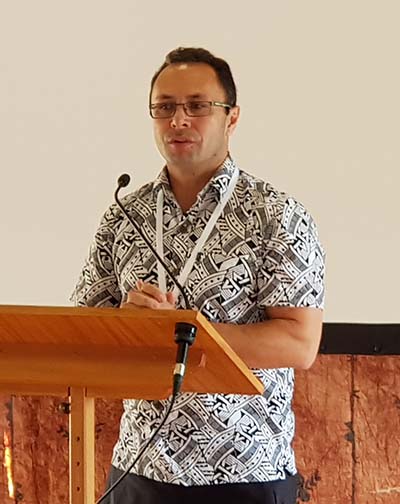
Many struggles
Toeolesulusulu Associate Professor Damon Salesa, who was recently appointed pro vice-chancellor (Pacific) of the University of Auckland, said: “Pacific research and Pacific knowledge matters.”
“It’s not simply research about the Pacific, by the Pacific that makes it Pacific research. It’s much more than that…and it has faced many struggles,” he added.
He talked about the struggles that researchers faced, such as not being properly resourced, the lack of opportunities to succeed, and the lack of proper recognition.
“These are the struggles NZIPR embarked on,” he said in a tribute to the institute that he was the founding director of. The achievements of NZIPR were:
• Creating a formal research programme – “five research programmes will be signed off completed or published by the end of this year.”
• Disseminating research through both online and offline platforms, and establishing a research repository to make visible the different kinds of knowledge.
• Building research capability and the research recognition of a diverse range of researchers that includes 12 scholarships and sponsorship for individual researchers and research projects.
He also remarked that NZIPR had “achieved so much so quickly”.
Highlights from Day One of the Oceans and Islands conference. Video: Blessen Tom
Indigenous principles
Dr David Welchman Gegeo led the third keynote session when he gave full recognition to indigenous ethical principles that guide the social construction of knowledge in Pacific island communities.
“Why do we keep doing research on Pacific communities?” and “Are we alone?” asked David Gegeo.
“Pacific Island’s epistemic communities are not alone in the quest for the indigenisation or oceanisation of research and knowledge construction in the Pacific,” he said.
“I think we have a better chance of answering some of our lingering questions in research when we work together as this team.”
He advocated the working together of university epistemic community, metro-centrist epistemic community and Pacific village epistemic community for research and construction of pacific knowledge.
Dr Gegeo holds a research position in the Office of Research and Postgraduate Studies at the Solomon Islands National University.
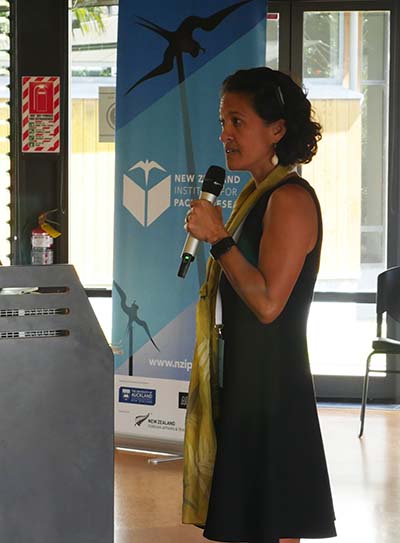
Dr Kapua’ala Sproat is a professor of law at the University of Hawai’i’s Richardson School of Law and the director of Ka Huli Ao Center for Excellence in Native Hawai’ian Law.
Her keynote explored indigenous people’s proactive responses to the pernicious impacts of global warming.
‘Sense of culture’
“I’m incredibly grateful that I grew up with a strong sense of self and culture because I think that really has rooted both myself and but also my work,” she said.
Professor Sprout examined Native Hawai’ians’ potential deployment of local laws that embody restorative justice principles to fashion meaningful remedies for the environmental and cultural damage as a result of the global climate crisis.
“Our identity as indigenous people is inextricably tied to these islands and our natural and cultural resources” said Professor Sprout and “Global Warming threatens our island home and our identity as a people”.
The final keynote session of the day was addressed by Leina Tucker-Masters, Eliza Puna and by Dr Jamaima Tiataia- Seath.
Their presentation canvassed the journeys of three Pacific women researchers throughout their academic careers.
“Engaging in research as an undergraduate student helped me connect with my Pacific culture while at university,” said Leina Tucker-Masters, a medical student at the University of Auckland.
Research methodologies
Tucker-Masters talked about her experience with Pacific research methodologies and how they influenced literature.
“I learned about Pacific health initiatives that use Pacific ways of thinking to heal Pacific people”.
“Postgraduate research gives you an opportunity to carry out very ethnic specific research and it allows for in depth engagement and helps to bridge academia and our communities,” said Eliza Puna, a doctoral candidate in Pacific Studies at Auckland University.
Dr Jemaima Tiatia-Seath is currently co-head of school and head of Pacific studies, Te Wananga o Waipapa, School of Māori and Pacific Studies, University of Auckland.
She talked about her experience as one of six panelists on the government’s Mental Health and Addiction Enquiry.
The Oceans and Islands conference will conclude tomorrow evening.
Sri Krishnamurthi and Blessen Tom of the Pacific Media Centre are working as part of a PMC partnership with the NZ Institute for Pacific Research.
